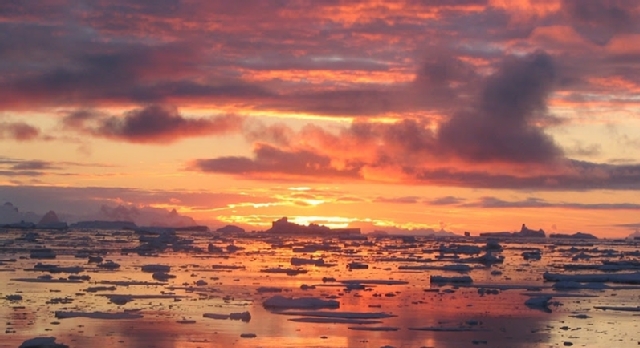Page 84 • (5,289 results in 0.07 seconds)
-

February 1, 2012 Antarctic sunset. Photo taken by Samantha Dillon. Resource 2012 Wang Symposium: Our Thirsty Planet Wang Symposium: Activist fights to preserve the precious resource of water By Barbara Clements Maude Barlow didn’t start out interested in water. Nothing of the sort, she recalled recently from her home in Ottawa, Canada. In the mid-80s, Barlow was working in the women’s movement and focusing on laws that would eventually be known as the as NAFTA. While looking over various
-
. This engaging, timely history examines the unfolding implications of major climate changes; the impact of resource exploitation on the indigenous peoples; the current high-stakes game for control over the adjacent waters of Alaska, Arctic Canada and Greenland; the events, issues and strategies that have influenced claims to authority over the lands and waters of the North American Arctic, from the arrival of the first inhabitants around 3,000 BCE to the present; and sovereignty from a comparative
-
Paper, quoting ELCA “Caring for Creation”) “Sustainability as generally understood combines attention to immediate needs and long-term goals in ethical, environmental, and economic choices. It incorporates concern for social justice with the inherent value of the natural world and attention to long-term economic viability.” (Sustainable Community Working Group Report, 2010) “Just as important as the goals of sustainability is the work it inspires, the work of incorporating economic, ethical, and
-
pet owner may bring their pet to a small meeting in a colleague’s private office, provided that the colleague has given permission to the pet owner to do so. (Note: see exceptions under “Restricted” section below.) All areas used by employees or students with documented disabilities who are assisted by designated guide or working pets. Classrooms and instructional facilities only when pets or demonstration animals are used by faculty members for teaching purposes. Restricted Areas Pets are not
-
biology, physiology, cell biology, genetics, immunology, microbiology, molecular biology, and neurobiology. Biology graduates also find immediate employment opportunities in secondary education, fish and wildlife programs, environmental programs, pharmaceutical industries, basic research, genetic engineering and other biotechnology areas. Our faculty members have expertise in career counseling PLU biology students. They work with you to plan coursework, map out career objectives and assist with
-

budgeting questions. Straight out of graduate school, she accepted an internship at ECOnorthwest, then run by the two founders “moonlighting” as University of Oregon professors. The organization’s roots lie in the intersection of environmental and economic issues — as Juntunen explains, “we made our name on the Exxon Valdez trial.” One founder was an expert during the trial, on the side of the fishermen — a high-profile role that launched ECO. In Juntunen’s first few years at the firm, she worked
-

resources to earthquakes and volcanoes, from geochemistry to geomorphology. The Pacific Northwest is abundant with geologic features, giving you the opportunity to work closely with professors inside and outside the classroom on class-based and independent research, and do field studies in the Cascade Mountains, Puget Sound, the Pacific Ocean coast and the Olympic Peninsula. Graduates from the last 5 years: Their jobs Natural Resource Technician, State of Alaska Environmental Hazmat and Emergency
-
, and food preparation. This course includes laboratory experiences and written laboratory reports. No prerequisites. (4) CHEM 104 : Environmental Chemistry - NW Basic principles of chemistry and reactions, with applications to human activities and the natural environment. Includes laboratory. No prerequisites. Suitable for environmental studies, general science teachers, elementary education, B.A. in geosciences, or fulfilling university general education requirements. (4) CHEM 105 : Chemistry of
-
: Natural History of Vertebrates A systematic survey of vertebrate diversity including fishes, amphibians, non-avian reptiles, and mammals. Coverage emphasizes phylogenetic relationships, evolutionary trends, natural history, and anatomy. Field trips and laboratory focus on observation and identification of local species. Prerequisite: BIOL 226. (4) BIOL 355 : Ornithology The study of birds inclusive of their anatomy, physiology, behavior, ecology, and distribution. Special emphasis on those attributes
-
Long Range PlanningPacific Lutheran University has identified three meta-priorities that infuse all of the work at the university: Lutheran Higher Education, Market Position, and Diversity, Justice and Sustainability (DJS). Advance Academic Excellence 201320142020 (GOAL) Faculty Quality Excellence in Teaching, Scholarship, ServiceMetrics created Incoming Student Quality (measured under SEMAC priority) Program Quality Major/Minor Programs % of disciplines w/honor societies % of departments that
Do you have any feedback for us? If so, feel free to use our Feedback Form.


